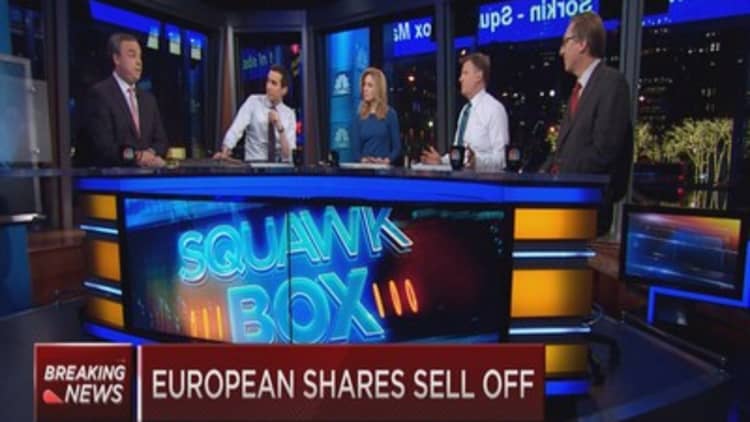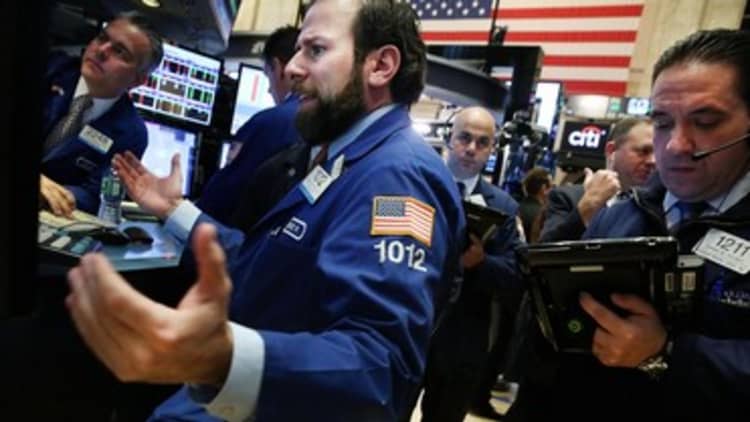


The latest fall in China's equity market is not the root cause for Thursday's broad-based sell-off, Dennis DeBusschere of Evercore ISI said Thursday.
"The cause is … we have weak global growth, we have high multiples globally and, I would argue, there is some delusions of control with regards to the Chinese economy that they could continue to drive some type of global growth that would support everything," the firm's macro research analyst told CNBC's "Squawk Box."
Global financial markets skidded after Chinese equities tumbled 7 percent in the first 29 minutes of trading Thursday. The plunge in China triggered circuit breakers that halted trading there.
"The contagion is the concern here," Liz Ann Sonders, chief investment strategist at Charles Schwab, said in another "Squawk Box" interview. "At this point, it looks somewhat similar to what we saw in August. I think the fact that it happens to correspond to the beginning of a year probably adds to the angst."
German stocks fell more than 3 percent, while U.S. futures pointed to a sharply lower opening.
U.S. oil futures also hit their lowest level since December 2008, a day after plunging 5.6 percent.
"There are still a lot of strains coming from China. There are still a lot of nerves around that; there are still a lot of nerves coming out of the Fed finally moving," Samuel Coffin, U.S. economist at UBS Macro Research, told "Squawk Box."
The Federal Reserve raised rates for the first time in nearly a decade last month. However, some of the central bank's policymakers said that their decision to raise the target range "was a close call, particularly given the uncertainty about inflation dynamics," according to the December meeting minutes.
"You can blame the Fed if your investment thesis was based on [if] multiples can keep going higher despite a deteriorating outlook because the Fed is always going to be easy," DeBusschere said. "But from an economic point of view, they are not doing anything that's particularly wrong."








